By Theresa Bontempo
The logistics industry is made up of a variety of areas of concentration, from transportation, warehousing, inventory management, order fulfillment, and more. But no matter what step in the process you’re in, every worker in this industry is a part of the system of getting goods from the point of origin to the point of consumption. This is a large industry with lots of moving parts, and in order to keep the supply chain going, lots of workers need to show up everyday and put their best foot forward. This can be hard to do when the industry also reports one of the lowest engagement levels, at just 28%.
There’s lots of room for improvement here, and HR professionals can definitely enact some useful strategies to help boost morale and engagement within the logistics industry. But how?
In this article we’ll be covering:
- Why it’s so important to have engaged logistics workers
- Ways to communicate and support logistics staff
- How HR can facilitate better employee engagement
Why logistics staff engagement is so important
Having engaged employees in a logistics company is a great way to boost efficiency

Without an engaged logistics workforce, companies run the risk of higher turnover and the potential for an increase in safety concerns. Image courtesy of Supply Chain Brain.
Every company wants to have engaged employees, after all, it’s one of the best ways to ensure a lower rate of turnover, allowing them to hold onto experienced employees who take pride in their work. Engagement is also crucial because it increases the productivity and profitability of the company, no matter what the industry is. Engaged employees are more satisfied with their daily tasks and duties, and are more loyal to the brand, ensuring there’s a greater chance they’re looking to grow their careers there. It’s up to employers, especially in HR departments, to enact specific strategies to retain skillful employees for years to come. This is especially true in the logistics industry, where employee engagement is low. This has led to a variety of issues that are consistently affecting the performance of logistics employers, including:
- Lower employee morale. When employees don’t enjoy the environment they’re working in, or worse, it is actually toxic, they’re less likely to put their best work forward. Reduced morale can further worsen the work culture, and increase the chances that employees are looking for work elsewhere. Toxic work environments create more conflict among employees, as well as between employees and managers, leading to resentment and distrust.
- Increase in safety concerns. Safety is of the utmost importance in the logistics industry. Depending on the type of work that your employees do, they could be responsible for moving large, heavy items, or ensuring shelves or containers are properly packed and organized. These hazardous working environments require employees to be attentive and aware at all times, in order to prevent serious injuries or safety mishaps. Disengaged employees are less likely to have their full focus on their tasks, increasing the risk of a safety issue. Mistakes are made by employees who have their mind on other matters, which is not something logistics employers can tolerate.
- High chances of absenteeism. Without employee engagement, logistics companies find that there is a higher degree of absenteeism, increasing the likelihood that multiple employees may have unplanned absences. This creates more work for those employees who do show up, fostering resentment for the additional tasks they’ll have to complete. When there are frequent absences, it’s more likely to also disrupt the supply chain, causing delays further down the pipeline. This can lead to frustrated customers, which is what no logistics company wants.
- Sub-par customer service. When logistics staff are not engaged, they are less likely to offer the level of customer service employers and customers expect. When customers and clients do not get the assistance or answers they need in a timely, courteous manner, they may take their business elsewhere. This can have a significant impact on the company’s bottom line.
How HR in logistics can help
Logistics companies want to avoid disengaged employees due to the many reasons we discussed, so what can HR do to help? Human resources departments are in unique positions to prevent or reverse toxic work environments that lead to an increase in employee dissatisfaction and decrease in engagement. They can:
- Ensure that the right people are hired. There are all kinds of positions available in logistics, from administrative to laborers. This is why it’s essential that HR is familiar with the skills and experience employees need to successfully do the tasks the job requires of them. It all starts with hiring the right candidates, and having a good recruitment and screening process in place to do just that.
- Provide training and development. Ongoing training for staff in the logistics industry is a must, as there are always new skills to learn and safety standards to uphold. Industry best practices can change over time, which is why offering ongoing training is a must. It’s also a way to foster growth and development from within the company, giving employees a path towards advancement.
- Enact performance management. Employees need to know how their performance will be evaluated, which is why having clear expectations and goals for each position is important. There should be regular feedback sessions so employees know how well they’re doing compared to the metrics expected of them. This gives HR and management a great opportunity to point out areas for improvement, or provide praise for achievements.
Ways HR can support logistics staff to boost engagement
HR departments in logistic companies have lots of methods at their disposal to improve the engagement of employees
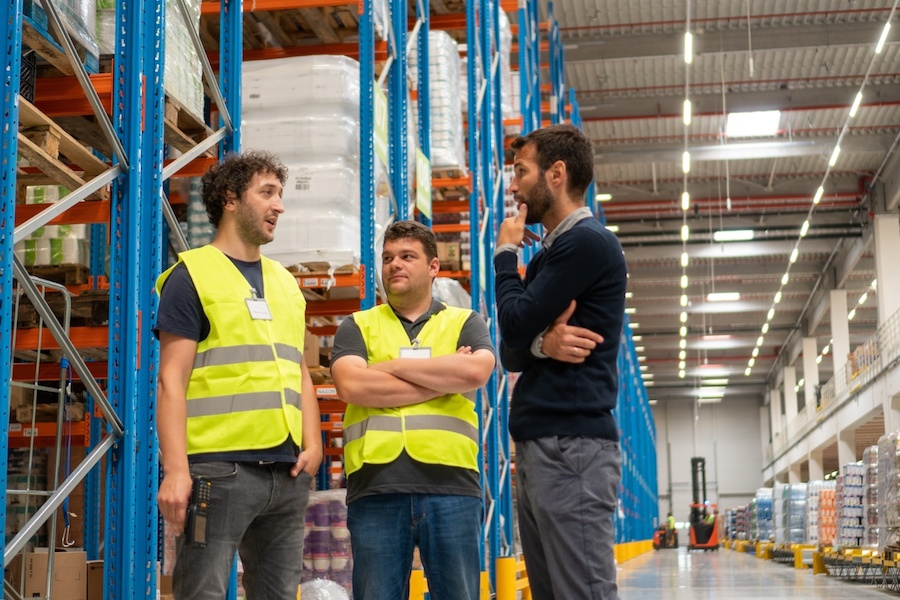
Using the power of digital signage for internal communications ensures that employees of all shifts are informed about important notifications. Image courtesy of Kenco.
If you’ve made the effort to hire and train the best candidates for jobs in the logistics industry, you’re going to want to hold onto them. No company wants to see their skilled workers leave because they’ve become disengaged. So what can HR departments in the industry do to boost communication and support of staff?
1. Utilize digital signage for employee communications
One of the most effective ways for managers and HR to communicate with logistics staff is with employee engagement software like Shift. Using a screen in common areas, you can replace the bulletin board with a digital solution for all your internal communications to employees. Deskless workers like those in logistics need a way to be informed of company notices and important information, and a screen with curated content to each employer is the best way to do just that.
This is also the best way to let employees know about safety concerns or upcoming training that’s available. Logistics companies can leverage digital signage to inform their workforce about employee awards or other recognitions, goals or metrics achieved, as well as company-wide notifications. The digital screen can display this content in a loop, ensuring that workers of all shifts will see the important information and managers will not need to worry about some groups not getting the details.
Shift can give your company the digital signage solutions you’re looking for. Our employee engagement platform delivers effective communication to your workers through digital screens. Your customized content can use real-time data and metrics to increase productivity, reduce employee turnover, and maximize your profit. Upgrade from the corkboard to a digital solution and you’ll be on your way to happier, more engaged employees.
2. Make sure to recognize employee achievements
Employees who are recognized for reaching a goal or going above and beyond their duties is essential to keeping your staff engaged. Whether this is a work anniversary, a milestone that they achieved, a birthday, or other fun announcement, calling out employees shows that management cares about recognizing all the good things that are achieved during the work hours.
Employee engagement software like Shift can help out logistics companies with this as well, as employee photos, bios, and their information can easily be uploaded and shared with the entire workforce.
3. Offer flexibility where possible
Employees in logistics often have schedules that can vary from week to week. If this is the case with your company, try to offer flexibility with their hours, or when workers want to swap shifts. Having some control over their schedule can go a long way in this industry. Employees are more likely to stick around if they know they can approach management or HR with a request to adapt their schedule if they need to attend to something personal.
When staff are not permitted to work around important family events or medical appointments, they’ll start looking for a job elsewhere.

Engaged logistics employees are less likely to make mistakes, which could be very costly for employers. Image courtesy of Appical.
4. Implement feedback
In order to have your finger on the pulse of how the front line logistics employees are feeling, you’ve got to continuously ask for feedback from surveys. Even if managers and HR state that they have an “open door policy,” most workers might be apprehensive to use it. Surveys, however, are quick and anonymous, and management can really get a better picture of what the concerns and requests are of their workers.
This doesn’t have to create more paperwork either, especially in the digital age. Using digital signage for internal communications like this is easy—you can include a QR code on the screen that will take employees right to the survey.
Providing opportunities for feedback is one thing, but you’ve got to take action on that information as well. When employees see their feedback being implemented, they know their voice is taken seriously, and that their needs are important—creating much more engaged workers.
5. Continue to build skills
Ongoing training for additional skills or a path towards leadership is a great way to allow logistics workers to diversify their expertise. Learning new skills opens the way to professional development, which shows staff there is room for advancement within the company. It also demonstrates that the employer wants to invest in the growth and development of employees who will eventually be promoted from within. This sets a great example, and not only increases the expertise of your staff, but ensures they’re plugged in and engaged.
Which strategies will your HR department use to support logistics staff?
The HR department has a lot of methods at their disposal to better communicate and support logistics staff. You want to ensure these employees are engaged and satisfied with their jobs, which can reduce turnover and increase the productivity of workers. With better communication, you’ll see a more positive work environment with loyal employees contributing to ensuring the job gets done safely and correctly.

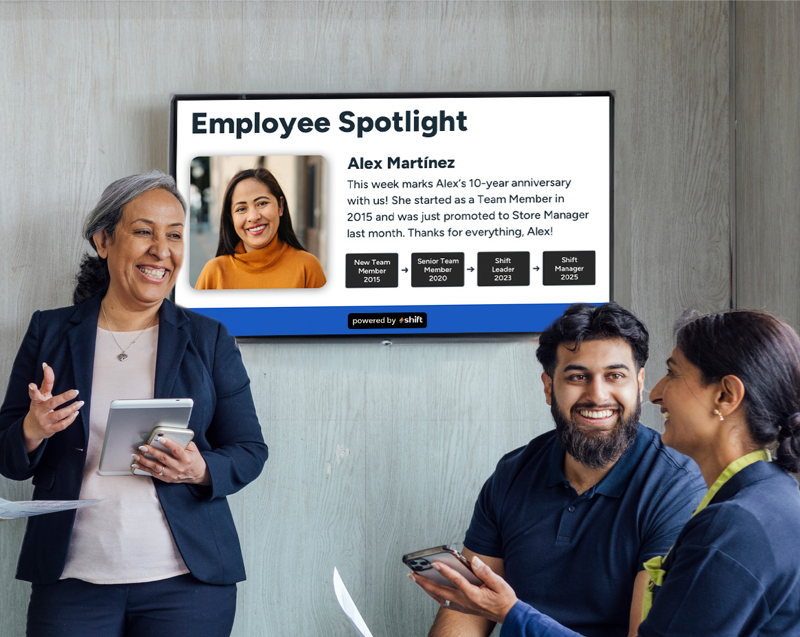
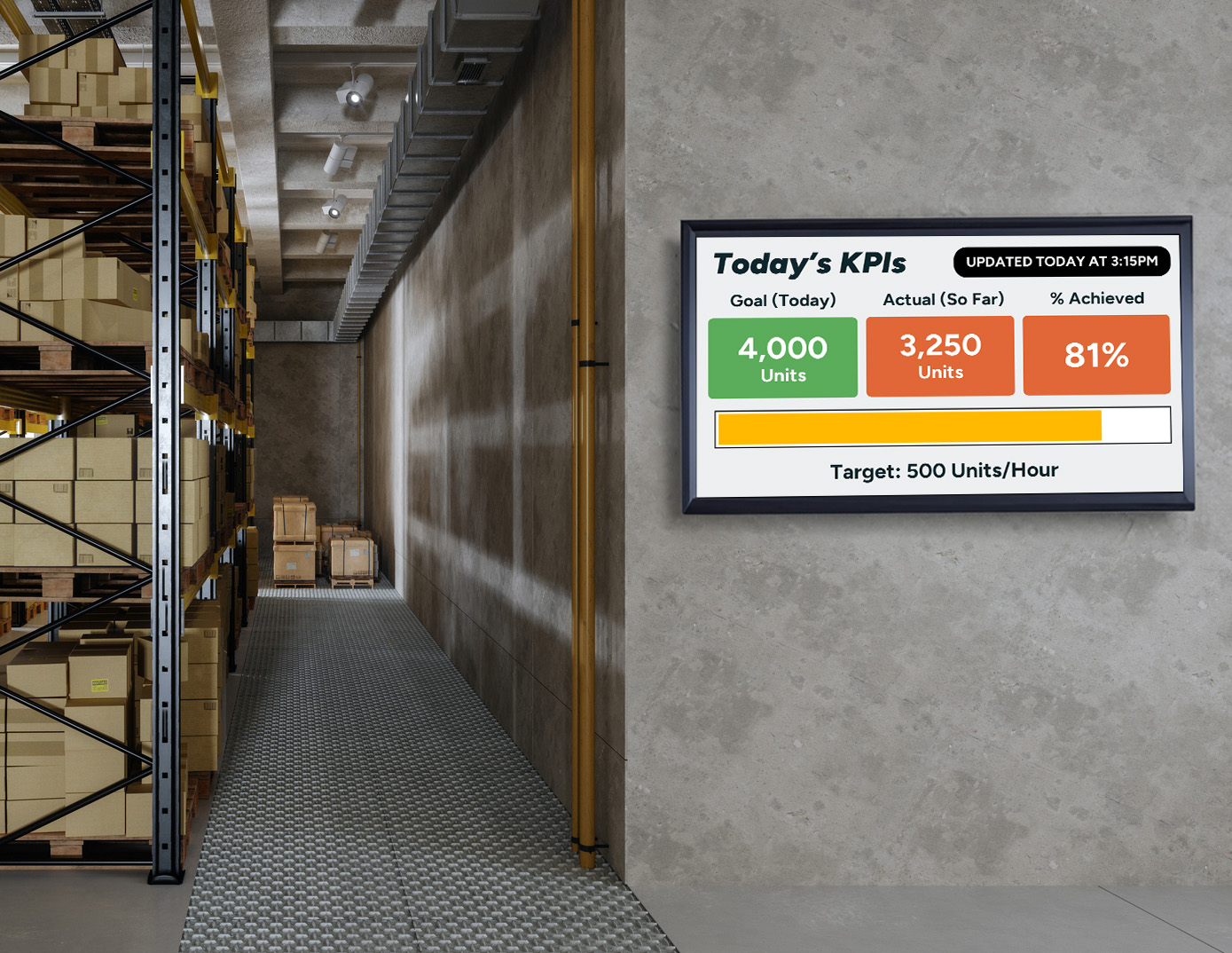











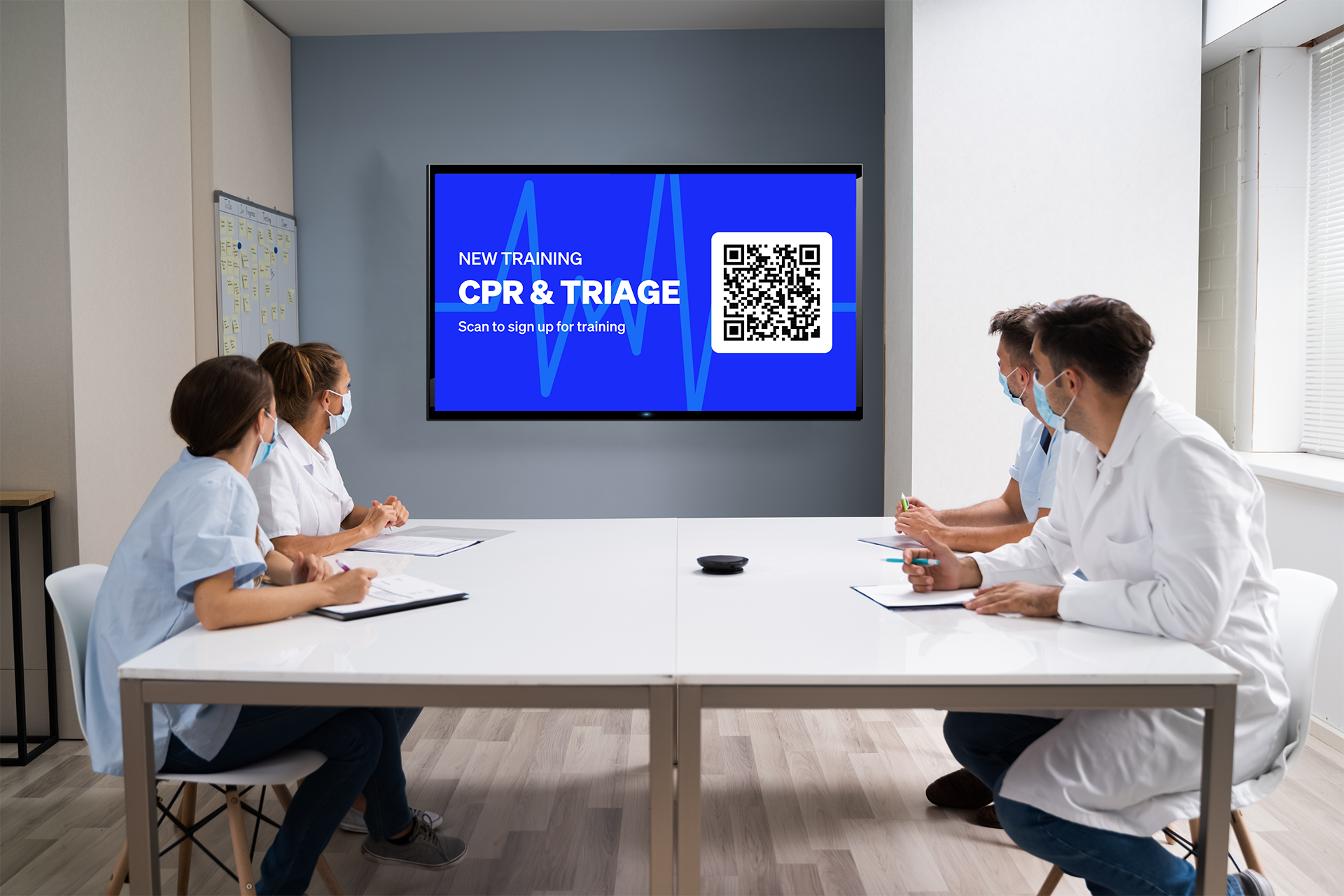
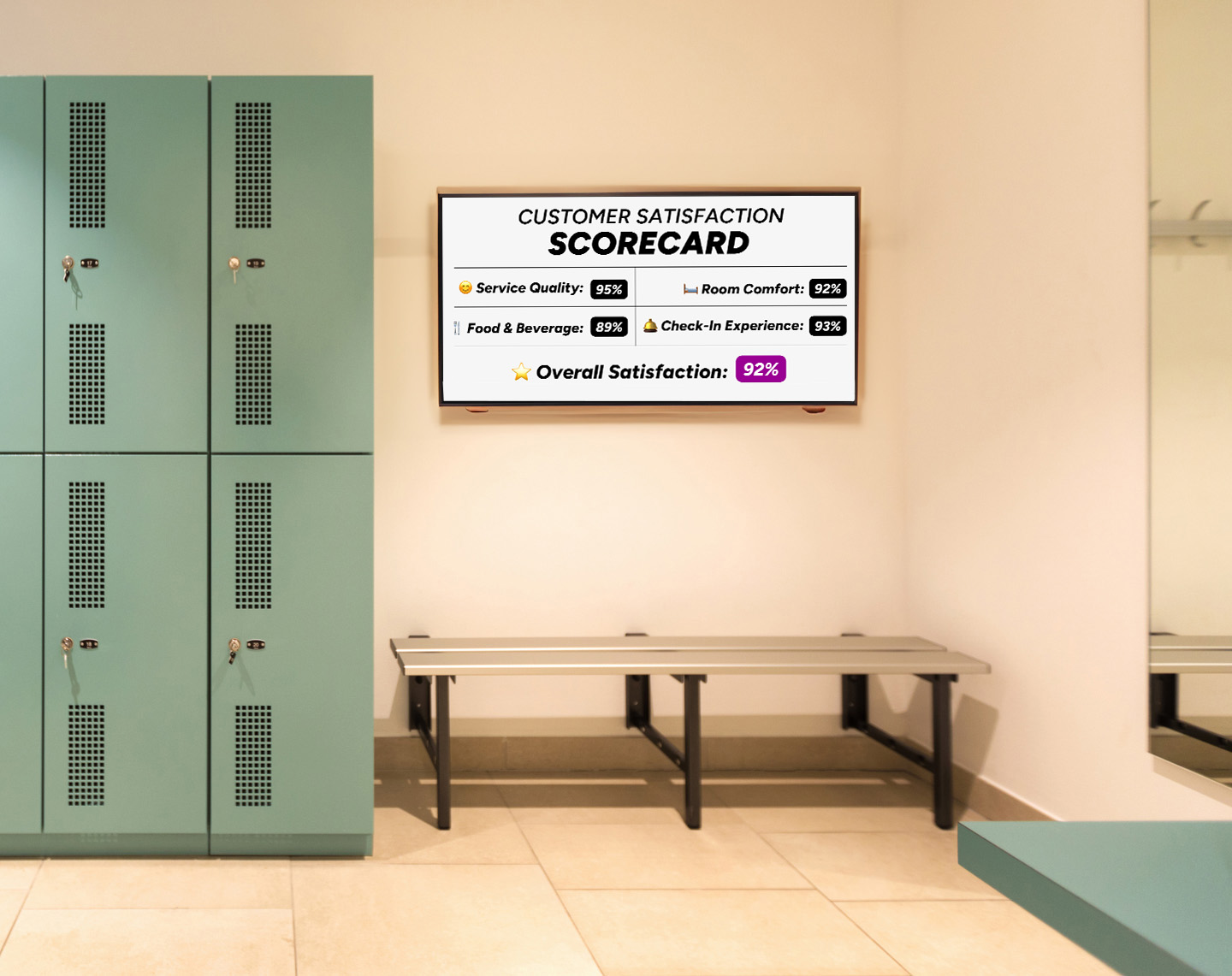
.jpg)